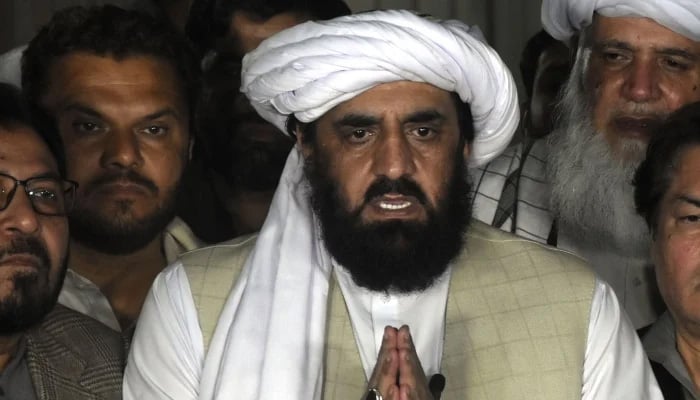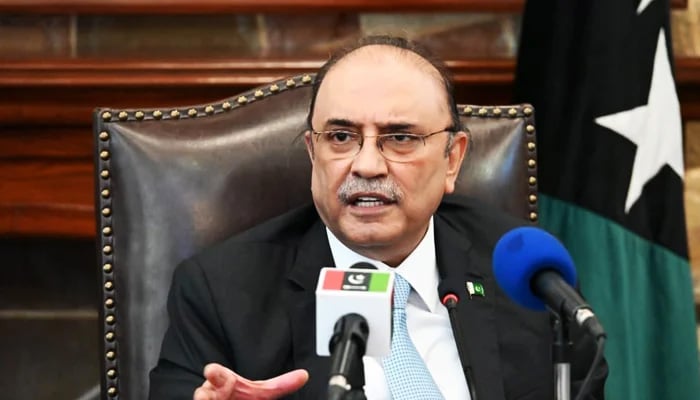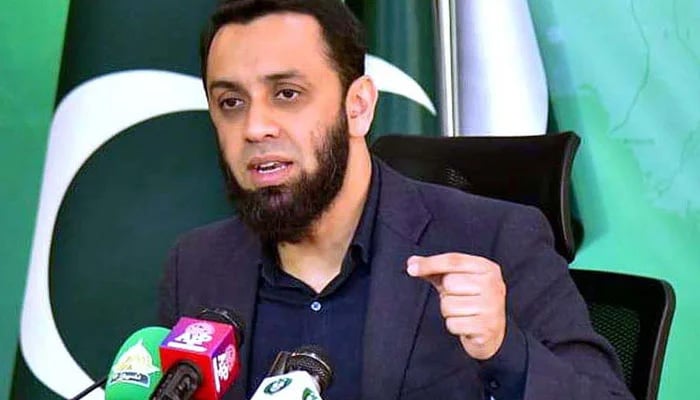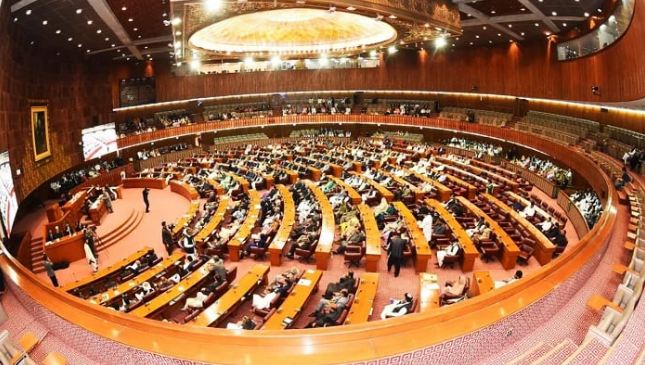ISLAMABAD, DEC 14: Amid ongoing consultation between the coalition government and the Jamiat Ulema-e-Islam-Fazl (JUI-F) over the contentious madrassa registration bill, Prime Minister Shehbaz Sharif has sent a advice to President Asif Ali Zardari for holding a joint session of parliament on December 17, parliamentary sources told Geo News.
The premier has advised the president to summon a joint session of parliament on Tuesday at 11am, the sources said, adding that eight bills including the contentious madrassa registration bill are likely to be tabled.
They also added that a consultation process was underway between the government and the Maulana Fazlur Rehman-led party on a new bill after President Zardari had “raised eight objections” over the previous legislation — Societies Registration (Amendment) Bill 2024.Play Video
The disputed madrassa bill, which has already been passed by both houses of parliament, has become a bone of contention between the JUI-F and the government. Its enactment was part of an agreement between the government and the religio-political party for supporting the 26th Amendment.
Following its approval from parliament, the bill now requires the president’s assent to become law but President Asif Ali Zardari had returned the bill earlier this month, citing legal objections. According to the Constitution, the bill must be tabled before a joint sitting after the president refuses to sign.
Reacting to objections to the legislation on Saturday, JUI-F leader Hafiz Hamdullah alleged that the government’s “prime objective is handing over seminaries to FATF [Financial Action Task Force] at the behest of the global anti-money laundering watchdog”.

“It has also proved that this is not the parliament of Pakistan but FATF’s,” the JUI-F leader said. He went on to say that the country’s “parliament is not independent to legislate [laws]”.
He said that objections would not have been raised at the seminaries registration bill had the legal experts at the President’s House read the legislation.
Speaking to the media in Karachi earlier today, Federal Education Minister Dr Khalid Maqbool Siddiqui said that 10 out of 15 seminaries’ boards had raised objections to the bill which led the federal government to review it.
He added that the government was working to give a legal shape to the combative Societies Act.
Meanwhile, the president has also expressed fear that if the madrassa bill turns into a law, then it may lead to imposition of FATF, Generalised Scheme of Preferences Plus (GSP+), and other sanctions on the country, reported The News on Saturday.

According to the objections, raised by the president, the registration of religious seminaries under the law would lead to spread of sectarianism and establishment of many seminaries in the same society that may disturb the law and order situation.
The president objected to the contradiction in the definition of madrassa in various provisions of the new bill.
Referring to the Madrassa Education Board Ordinance 2001 and the Islamabad Capital Territory Trust Act 2020, he said that the new legislation could not be enacted in the presence of both acts.
The registration of madrassas in the society would lead to a conflict of interest and such a conflict of interest would draw international criticism, while the approval of the bill could lead to a change in the FATF and other international organisations’ opinions and ratings of Pakistan, the objection by the president said.
The president suggested to the members of the assembly that international issues should be taken into account while drafting a bill related to madrassas.
Bill nothing to do with FATF: Tarar
Federal Information Minister Attaullah Tarar said the objections raised by President Asif Ali Zardari on the seminaries’ registration bill are completely “constitutional and legal”.

“In these objections, there is no mention of Financial Action Task Force (FATF), nor they have any connection with it,” said the minister in a post on X formerly Twitter today.
He said it is not in the interest of anyone to politicise the constitutional and legal matters. “Linking the registration of seminaries with FATF is nothing but a creation of complete imagination and speculation,” he said.
The Constitution elaborated the complete procedure for legislation, he said, adding the President objected in accordance with the Constitution and the parliament would also rectify it in the same spirit.
The purpose of these speculations is to target the powers of the President and Parliament, he said, while urging the people not to criticise the issue just for the sake of criticism.
The bill
The much-discussed legislation is an amended version of the Societies Registration Act, 1860, which emphasised the registration of madrassas (Islamic seminaries) in existence “within six months” from its enactment.
It also stated that a Deeni Madrassa established after the commencement of the Societies Registration (Amendment) Act, 2024, shall get itself registered “within one year of its establishment”.
A seminary having more than one campus shall need only one registration, it read.
Subsequently, each madrassa would be bound to submit its annual report of its educational activities and audit report to a registrar.
Under the law, a Deeni Madrassa was defined as a religious institution established or operated primarily for the purpose of imparting religious education, which provides boarding and lodging facilities.

















